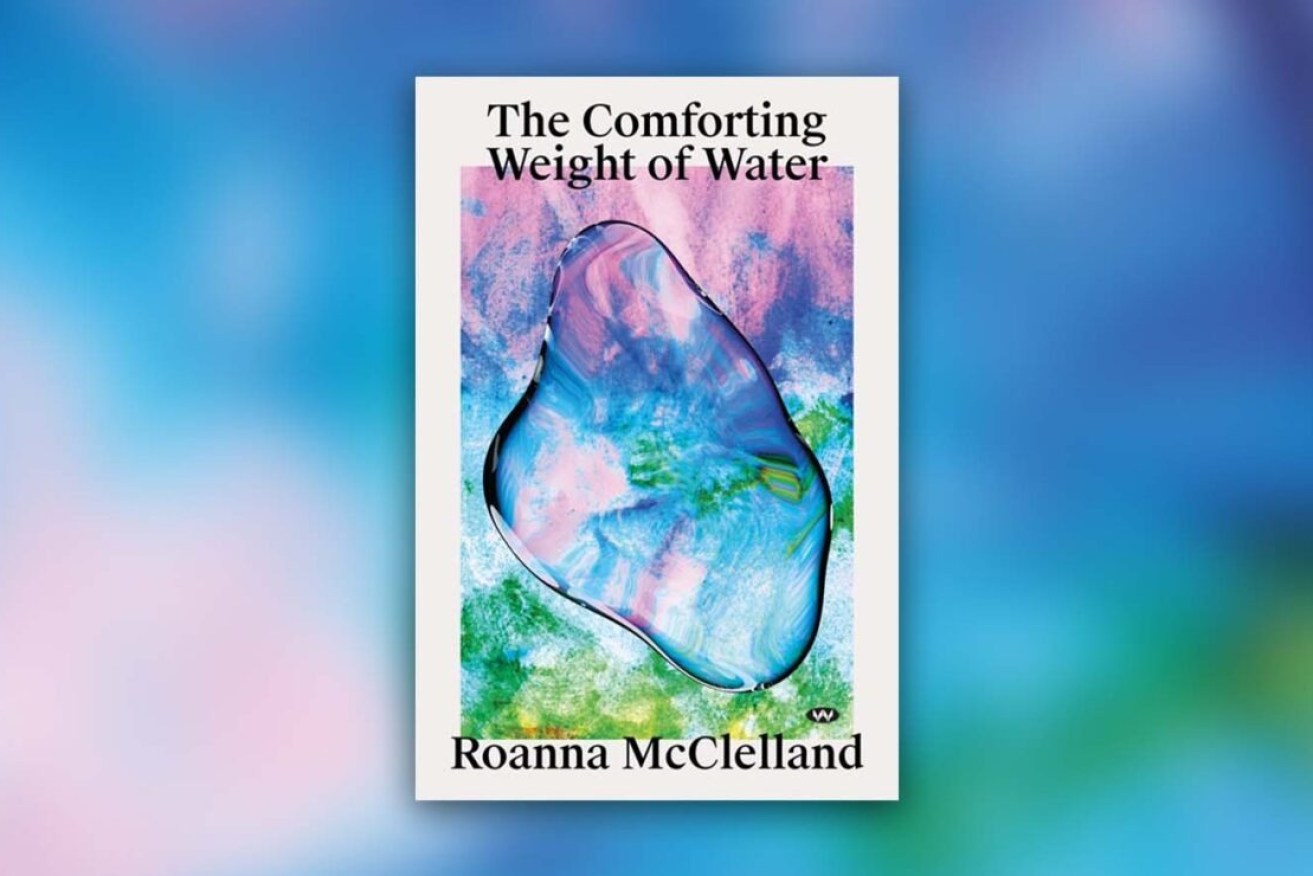Book review: The Comforting Weight of Water
Roanna McClelland’s novel highlights the discomforting weight of a bleak future and the hand we have in its creation.


Written by South Australian author Roanna McClelland, The Comforting Weight of Water spins the classic fish-out-of-water narrative on its head – taking on the perspective of a fish in water who is disliked by the out-of-water dwellers.
In the novel, readers follow an unnamed character described perfectly by her caretaker Gammy as “slippery and muscular and full of fight and fury”. Journeying with the character, we find ourselves in a world that was once like our own, but which is now filled with strong waters that have overtaken the lands – changing both the world and the people in it. The people are now emotionless and volatile villagers, who eradicate all but one of the new species known as “the Unbidden” in a brutal genocide driven by greed and self-preservation. Our main character is one of the few Unbidden allowed to live.
McClelland paints the world, known as “the Wet”, as a mundane land wringing-wet with constant rain falling from the sky. There is only one hour each day during which the rain ceases its endless downpour. All that we knew (buildings, churches, shops) is gone, replaced with small houses sitting on stilts and connected by a shade covering that can barely keep out the rain.
The people that inhabit the five different villages are a perfect reflection of the colonialist world view. They kill what is considered “other” and care only for themselves. It is after realising they can’t provide for themselves in what they perceive as an inhospitable world that they decide to let one Unbidden child live in each village. This is where our protagonist comes in – working as protector and gatherer of foods and supplies.
Our character – who remains unnamed throughout the entirety of the novel – is a youth freshly entering puberty, but is expected to take on the weight of caring for their whole village and for Gammy. They are oblivious to the social norms that the villagers adhere to in their quest to maintain the status quo. If allowed, they would run around naked with no care for anyone but themselves and their happiness.
Instead, they gather food each day – leaving it where the villagers can reach it – and abide by curious rules designed to prevent them upsetting the villagers or Gammy. These rules include ridiculous orders such as wearing a bell around their ankle at all times to alert the villagers to their whereabouts. They’re also forced to hide so the villagers are not scared by their appearance – rendering the character almost invisible to those they serve.
The more our character explores the landscape they inhabit, the more we see just how removed they are from the life they were meant to live. They live completely alone each day – they are the only being who ever goes outside – and when indoors, they have just their sick Gammy as company. She is a caretaker chosen by the villagers to raise the Unbidden child for the whole community’s use and she often tells our protagonist stories of the land before “the Wet” and the life they lived then.
As the villagers become weary of their bleak future and doleful lives, they start building structures – trying to take back the land they lost to the water. We can see just how disconnected they are from the empathetic and humane people they once were. These people – who are reliant on a child for protection and food – plot to develop their power and create a path back to dominance.
McClelland uses her talents and expertise in environmental policy, law, politics, media and research to pull together a cohesive and hilariously crass story driven by her unique voice, while also highlighting the environmental dangers we ourselves face.
This novel is a biting commentary on global warming told through a vivid story of a world filled with water and wit, which paints a melancholy outlook for our society as we choose which path we will follow. Only time will tell if “the Wet” – or an equivalent – will fall upon our lands someday, too.
The Comforting Weight of Water, by Roanna McClelland, is published by Wakefield Press.
Leesha Cole is a Ngarrindjeri writer and actress. She is one of the first recipients of the Arts SA and InReview First Nations Arts Writing Mentorship. Leesha is working with Meriam (Magaram), Wuthathi and Bindal Juru journalist and business woman Nancia Guivarra to write a series of articles for publication in InReview.
This article is republished from InReview under a Creative Commons licence. Read the original article.
InReview is an open access, non-profit arts and culture journalism project. Readers can support our work with a donation. Subscribe to InReview’s free weekly newsletter here.




